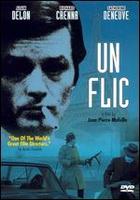 Stuart's Nite
Stuart's Nite Pizza, Fantastic Ice Cream
Jean-Pierre Melville: "One of the most brilliant film-makers in post-war French and world cinema, Jean-Pierre Melville now enjoys renewed popularity. His Bob le flambeur (with its street-wise Montmartre and Pigalle settings, its cool jazz score and its good-humoured tale of gangster clans) not only inspired the New Wave, but has attained unassailable cult status. Other iconic gangster films such as Le Doulos, Le Samourai and Le Cercle rouge are now hailed as masterpieces by latter-day legends John Woo and Quentin Tarantino. Meanwhile, with Le Silence de la mer and L'Armée des ombres, Melville also contributed two of the greatest films about the Resistance during World War II."
Irish Film Institute: Born Jean-Pierre Grumbach to a prosperous Jewish family from Alsace, Jean-Pierre Melville (1917-1973) spent his youth in Paris watching Hollywood movies. An enduring passion for America led him to adopt Herman Melville's name and a signature outfit of Ray-bans and Stetson, and to forge unique Franco-American hybrids in his distinguished career as a director.
Melville's other formative experience was the Resistance, which led him to participate in the Liberation campaigns in North Africa, Italy and France. Indeed, his first feature was an adaptation of the Resistance classic Le Silence de la mer. This he did with no training and against fierce opposition from both author Vercors and the French film industry. The film's success launched Melville's career and he ensured his continued independence by, unusually, building his own studio in Paris. This rebellious stance was one reason he was dubbed a 'father' of the New Wave. But the young Turks of the New Wave also admired Le Silence de la mer and Melville's next film, an adaptation of Cocteau's Les Enfants terribles (1950), for his innovative direction. In 1956, his atmospheric thriller Bob le flambeur finally provided a model for reworking the Hollywood gangster film-as recognised by Godard, who cast Melville as 'Parvulesco' in Ë bout de souffle/Breathless (1960).
In the 1960s Melville's work evolved towards bigger budgets, more controlled studio work and an increasingly minimalist style.

